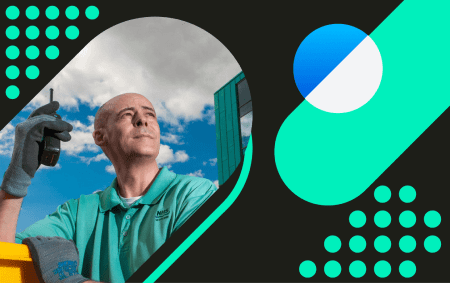
Frailty data is vital when it comes to fall prevention – but getting it right is the key challenge
Head of Innovation at InnoScot Health, Robert Rea looks at exciting new Scottish developments
When it comes to prediction and prevention of falls, it’s undoubtedly a case of the more information that we can leverage, the better.
It’s great news then that the University of Strathclyde and Glasgow City Health and Social Care Partnership (HSCP) have jointly undertaken a research project with the aim of identifying how improved data analysis could help to achieve the more comprehensive picture which clinicians seek.
Also involved are telecare providers Tunstall and the Digital Health and Care Innovation Centre (DHI) so it represents an exciting, holistic initiative, analysing the chain that leads from the telecare tech itself and how its outputs are monitored, right to the end user experience.
With approximately 35 per cent of the population over 65 identified as mildly frail, 15 per cent moderately frail, and five per cent severely frail, we must urgently accelerate dedicated frailty-targeting innovation.
Injuries caused by falls are thought to be a leading cause of hospital admission and death for those aged over 75, with more than four thousand annual hospital admissions in Glasgow – but with the right data-driven support, many of those can be avoided, also facilitating greater ability to bounce back from illness than would have otherwise been possible.
There are great opportunities alongside the challenges – not only to make lives better and reduce fear of falling that can be accompanied by loss of confidence and isolation, but also to realise time and cost savings that can then be redeployed back into the NHS amid an increasingly ageing population.
The new partnership’s research champions the use of better, more proactivity-led data analytics within telecare equipment – alarm systems designed to keep those considered to be frail safer at home – for timely and early interventions which help to prevent and reduce the longer-term impact of falls.
The analysis further notes how Artificial Intelligence (AI) could play a significant role in building more personalised, predictive, and proactive models for allocating health resources with enhanced efficiency and effectiveness, both at the right time and in the right place.
The partnership placed a focus on their key investigative challenge – how to best leverage the vast data collected across the health and social care system to identify or predict people most at risk from falls and potentially debilitating injuries, and what services could work best for them to offset such scenarios.
We believe that our call to health and social care professionals is timely with innovation representing true empowerment for those who need it most. Fundamentally, it is all about improving quality of life while supporting NHS Scotland adapt to changing demographics.
Robert Rea, Head of Innovation, InnoScot Health
Data accessed from more than 28,000 Glasgow residents who use the telecare system was analysed by researchers for potential gaps in information. The research also looked at how data might be better captured for analytics purposes and usage in future research and innovation projects, as well as further predicting service users’ specific needs for better outcomes.
The partnership’s research findings encourage a “less risk averse approach to data sharing across organisations” in tandem with system integration and automation in order to produce the most comprehensive, efficient picture possible while reducing admin work for staff.
Marilyn Lennon, Professor of Digital Health and Care at the University of Strathclyde noted that “it is not straightforward to share data but when we do, we get great results. We have the opportunity to share innovative machine learning for the greater good”.
Formal NHS Scotland partner InnoScot Health welcomes this positive research and hopes that it can lead to further workforce-led innovation in a vital area, aided by important information campaigns targeting more active lives for Scotland’s ageing population such as one launched earlier this year by NHS Highland.
InnoScot Health aims to tap into staff expertise and together help to develop new innovations that can help people live better in later life or cope with long-term health conditions.
The organisation’s frailty innovation call supports NHS Scotland innovators from any NHS health board and any role or medical discipline and encourages them to get in touch with their ideas.
We believe that our call to health and social care professionals is timely with innovation representing true empowerment for those who need it most.
Fundamentally, it is all about improving quality of life while supporting NHS Scotland adapt to changing demographics and demand for services.
InnoScot Health offers the opportunity for health and social care professionals to submit those ideas for new and innovative approaches to frailty – whether that be concept, technology, device, or service.
A package of support for health and social care staff is available to those looking to submit their ideas and reimagine the frailty system of care.
The frailty call is open to anyone working across NHS Scotland and harnesses the wide spectrum of our talented health and social care professionals.

Got an idea?
Every innovation starts with an idea. Ideas from people like you. People working within health and social care who can spot opportunities, solve problems, and identify ways to make things better.
If you have an innovative healthcare idea, then InnoScot Health would like to hear from you. You can start by booking a consultation or submitting your idea.
Chat